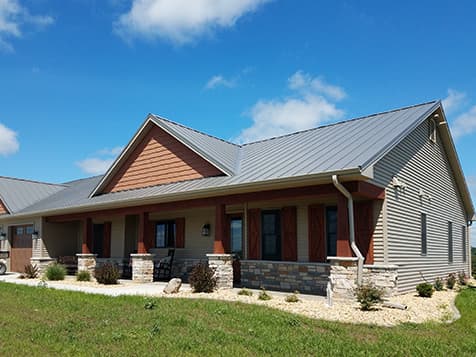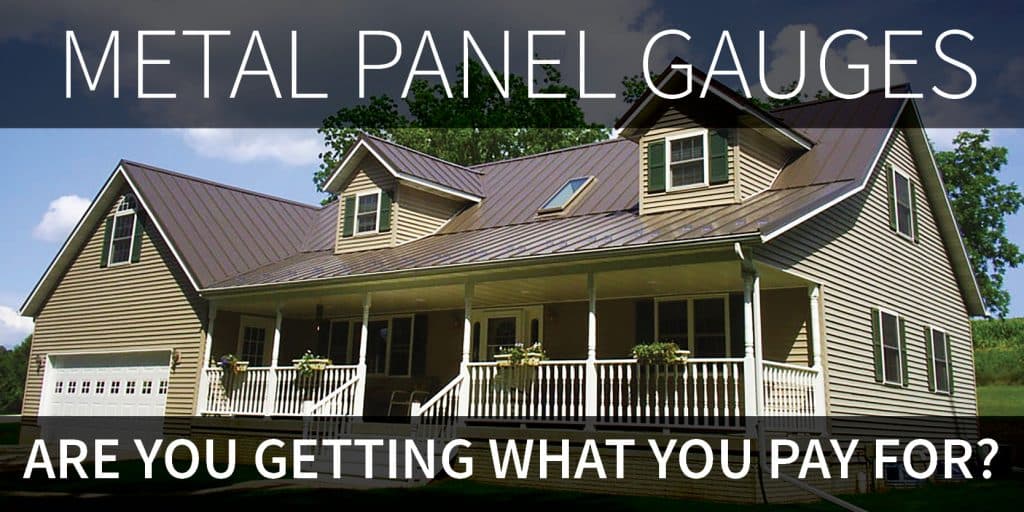As with any kind of roof, proper maintenance is integral to protecting against hurricane damage. In part 1 of this series, we reviewed how choosing metal roofing can help prevent wind damage to homes and businesses. And while choosing metal panels as a roofing solution is the first step to damage prevention and increasing roof longevity, there are additional precautions your customers can take to protect their investment.
Professional inspection
Prevention is key. To maintain the strength and durability of metal roofs, your customers should have a licensed metal roofing professional inspect it regularly. While your customers can manually inspect their roof themselves, a qualified roofing inspector can thoroughly examine it, identify areas of concern and provide a detailed report including roof life expectancy, photos and repair estimates. Professional inspectors can also make hurricane preparedness recommendations based on your customer’s roof type.
Ensure all fasteners are secure
Fasteners are the key to preventing roof uplift as a result of high winds. Be certain the roof is properly fastened to the truss and that the correct fastener type, diameter, length and thickness are used. Consider the thickness of the panel, substrate and any other materials between the panel and truss to when selecting fastener length to ensure roof panels are secure. (Screws often need to be triple the length to accommodate the thickness of what’s being screwed down.) Additionally, although placement of fasteners may seem like a minor detail, screw pattern can actually be a major factor in a roof’s structural integrity. Be sure to follow the panels manufacturer’s instructions to the letter during installation.
Check for rust, loose screws and flaking paint
When rust develops on metal, it can accelerate degradation, compromising the integrity of your customer’s structure and leaving it vulnerable—particularly in inclement weather. While ABC offers Galvalume® metal panels that prevent rust from occurring, standing water and heat from direct exposure to the sun can degrade this protection over time. Therefore, it is important that customers regularly check for rusty and loose screws as well as flaking paint which can also cause rust development. If rust is found, advise your customer to contact their roofing contractor for repair options.
Install hurricane straps
An added layer of protection from high winds, hurricane straps (or roof tie-downs) securely tie rafters to load-bearing walls. Made of galvanized metal, they can attach to most roof types, protecting it and the structure beneath. Hurricane straps can also help keep a roof from detaching and causing damage to nearby structures and objects. Many homes already have them (depending on how old the roof is), but even structures with hurricane straps should be checked to make sure they were installed properly.
Add roof reinforcements
Although most metal roofing is resistant to wind-related damage, adding reinforcements can decrease the likelihood of damage. This is particularly true if your customer’s building project is located in a hurricane-prone area. To reinforce their metal roof, your customers can add sturdy overlapping materials on top such as heavier metal panels or two-by-fours. A professional roofing contractor can advise your customer on the best reinforcement option for their structure.
Brace gable ends
Gable ends experience a lot of exposure to high winds, making them vulnerable to wind damage. If your customer’s structure has a gable end, they should ensure that it has been solidly built and appropriately braced.
Trim your trees
Trees that hang over your customer’s roof can be dangerous any time of year, but particularly during a hurricane. Falling tree limbs can cause severe roof damage, allow water into the structure, cause electrical issues or even injure someone inside. Trimming trees to is an easy way to prevent damage and injury.
Perform an interior inspection
If your customer is experiencing issues with their roof, chances are that they will also see damage inside their structure. Your customers should be aware of any spots, stains, peeling paint and daylight seeping in. These are all serious indicators of a compromised roof and should be addressed immediately.
Secure the Yard
Unsecured items around your customers’ property can become a major threat to your customer’s home or business during a hurricane. With strong winds, patio furniture, trampolines, grills and even potted plants can become dangerous projectiles. If these objects strike your customers roof, they could cause severe damage. Customers should move small items inside and secure larger items with rope or zip ties.
Choosing metal panels as a roofing solution is the first step to preventing building damage during hurricane season. There are, however, extra precautions your customers can take to prevent damage and protect their investment.
For additional information on metal roof performance during hurricane season, read part one of our blog series. For additional tips on how to storm-proof your roof, reach out to your local ABC representative today.
Quote and order metal building products anytime, anywhere and from any device using our online ordering tool. If you don’t already have an account, register for access today!
Note: This post was updated from a previously-published version.




